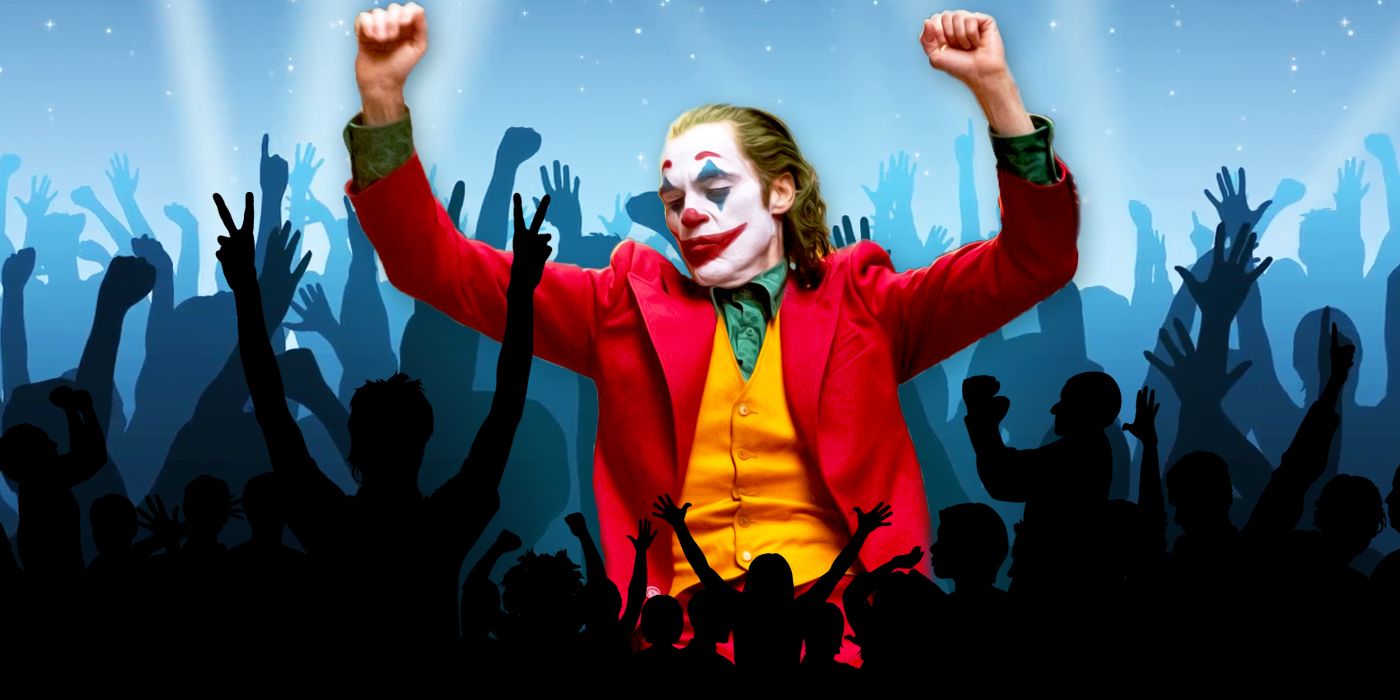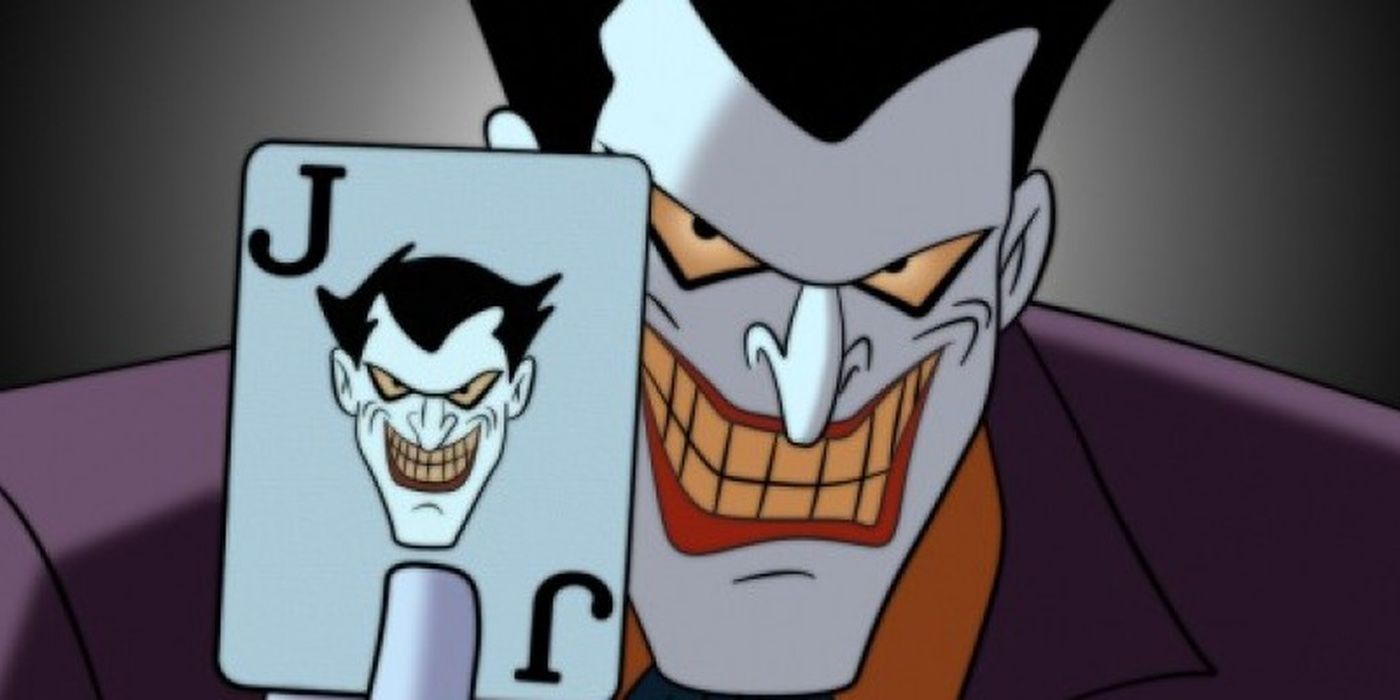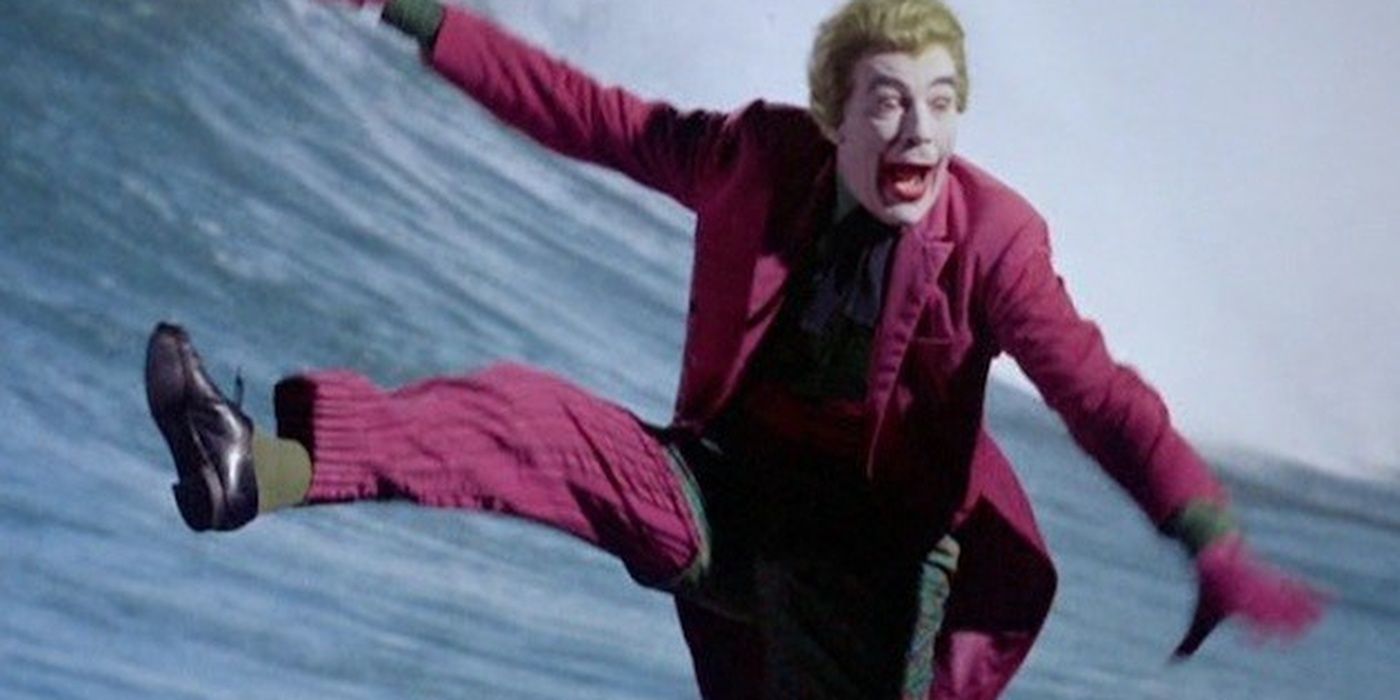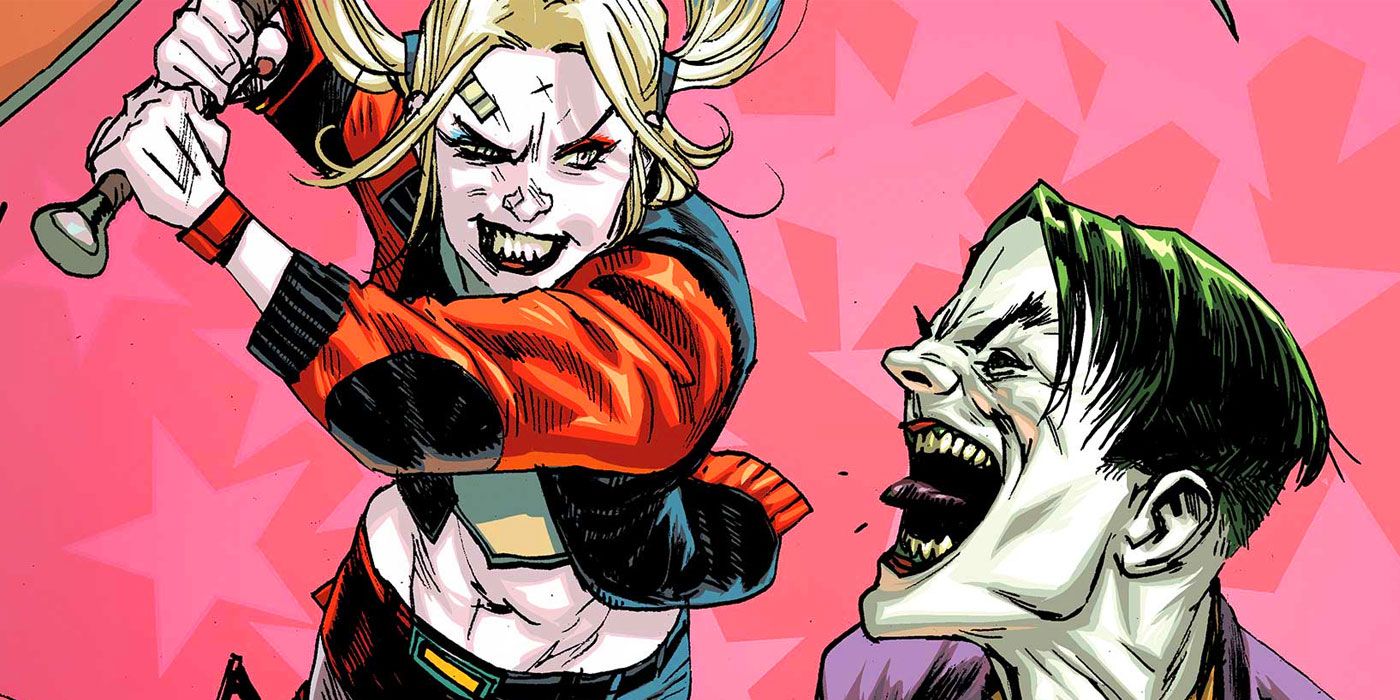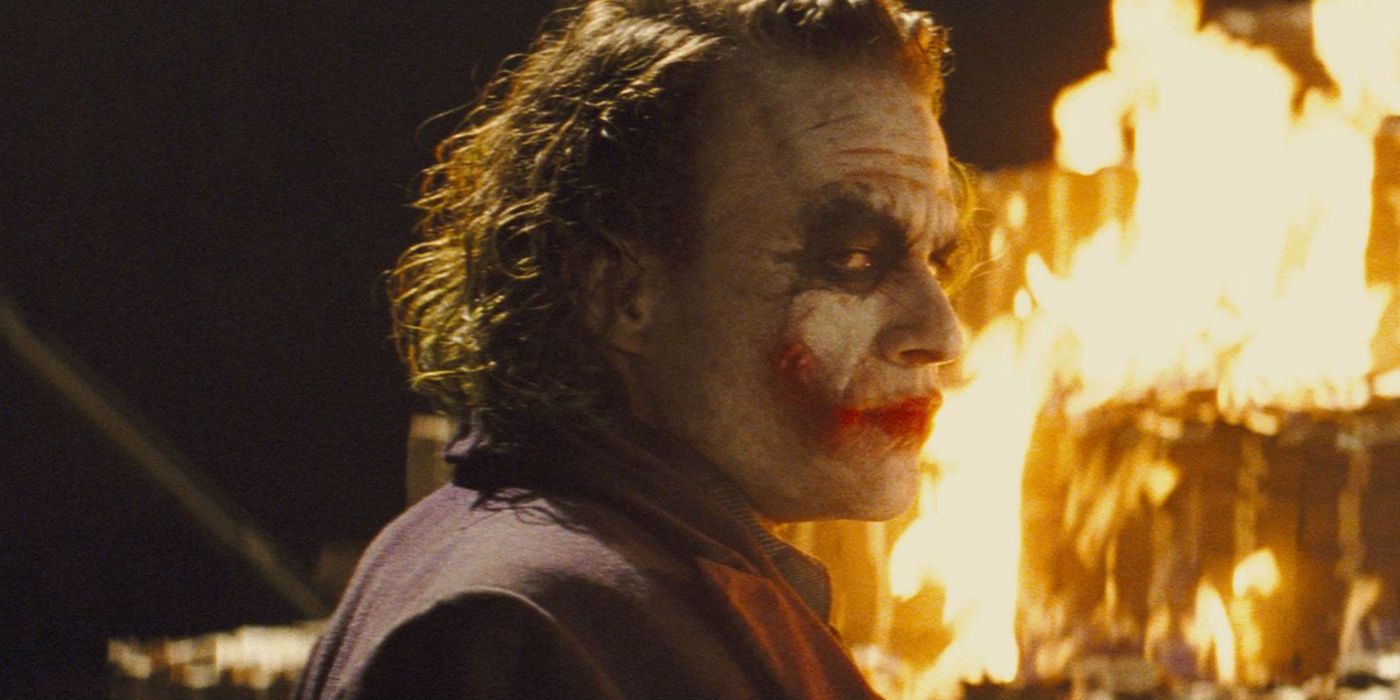One of the greatest comic villains of all time will receive his own movie this October. Directed by Todd Phillips and starring Joaquin Phoenix in the titular role, Joker aims to offer a sympathetic, tragic portrait of the Clown Prince of Crime, helping people understand his side of the story. While it seeks to afford a new perspective into the Joker's life and past, the film does not necessarily condone his evil actions.
Yet, in many ways, audiences have always idolized the Joker. Granted, some percentage of every audience espouses a level of either villain sympathy or even worship, but the Joker gets this reaction a lot. For some fans, he stands as a figure of anarchy against the orderly machine of society. Others see the character as someone who, in the face of horror, simply laughs -- in that, they find a sort of strength. However, what these people may overlook is that the Joker is, in all senses of the word, an evil psychopath who cares for no one but himself. He is no idol. So then... why do people idolize him?
The Myth of the Joker
Some people who idolize the Joker simply romanticize what he represents. The myth of the Joker is part of the character's staying power. He serves as a chaotic mascot for discord in an overly-ordered world that ironically, to them, makes no sense. Joker disrupts the status quo, standing in opposition to all society has to offer, and laughs.
Many comic readers and superhero fans feel they stand in opposition to mainstream society. Regardless of if these feelings have any basis in reality, they feel it. So a character like the Joker represents their perspectives of self, or at least what they wish they could do to society in some small way.
However, it is important to distinguish that these fans focus only on this aspect of the Joker, and perhaps his less savage incarnations. Their opinions, therefore, don't necessarily praise any specific actions of the character; that disavowal of his core conceit, however -- that he is a sociopathic misanthrope -- lies directly in contrast with the reality of the character.
Joker and the Power of Laughter
People like things that make them laugh. The Joker is no exception. One of the greatest aspects of the Joker is that he can horrify and amuse the audience who reads or watches his crimes. If something horrific is presented through a humorous lens, the audience won't be horrified. They'll be amused.
Perhaps the best way to view this is the Joker's magic trick from The Dark Knight. In it, Heath Ledger's Joker stabs someone through the eye. However, due to the subversion of expectations, the otherwise innocuous weapon used to do the stabbing, and the fact the person he kills is a nameless criminal, audiences are less horrified and more amused.
This holds true for most of Joker's actions throughout his many incarnations. It is often easier to overlook the horrendous things the Joker does when you're laughing at them, which is of course the insidious draw and power of the character. It is also why audiences more familiar with the Joker in the animated series or films might be more inclined to like the character. After all, most portrayals of Joker on screen are focused on making the character entertaining, sometimes to children.
In any exploration of the Joker as a character, one must also discuss his aesthetic appeal. While many people suffer from coulrophobia -- the fear of clowns -- there's no denying how iconic that look has become, thanks in large part to the Joker. Still, many comic writers present the character as a horrific one, often leaning in to prevalent body horror elements, be it horrendous facial deformities or even the detachment of a face altogether.
Films, however, largely avoid making the Joker too frightening, while still applying a decent helping of menace. The horrific aspects are toned down, however, or at least explained away as something cool or mysterious. Heath Ledger's Joker look, for example, was described as "war paint" in the film: a call to action, in many ways, for the visual outcast to take up "noble" arms against perceived oppressors. In actuality, though, Joker may be the most malicious oppressor of all.
The Harley Quinn Problem
One factor that has always plagued the Joker is this: he has been played throughout history by traditionally attractive men. Caeser Romero played the male lead in several productions, allegedly even refusing to shave off his iconic mustache to make way for the makeup. Heath Ledger, who admittedly many felt disappeared into the character, was still a heart throb for most of his career. Jared Leto is also known for his attractiveness, as isJoaquin Phoenix. There is an air of allure to a powerful man like the Joker, as well as the men who play him.
On top of that, many fans who find themselves attracted to the Joker might be hoping to live through a fantasy of "fixing" a bad boy, or girl in the case of Flashpoint's Joker. The Joker is a villain, sure, but couldn't he one day turn over a new leaf? Can't he be saved? That was certainly the premise of the recent Batman: White Knight story by Sean Murphy, after all.
Of course, this aspect is best manifested in Harley Quinn. Harleen Quinzel was a psychologist who went mad with love after working with the Joker. She convinced herself that he loved her and swore to do whatever it took to help the Joker accomplish all his maniacal goals, all because she loved him. Harley was horrifically abused on an emotional and physical level by Joker, and at no point did he ever see her as more than a tool to use. The best portrayal of this is in the heartbreaking episode of Batman: The Animated Series titled "Mad Love."
Their relationship has been walked back in recent years because of its inherent toxicity, moving Harley away from his mind-bending machinations. This has given her not only agency, but also a more loving relationship between Harley and Poison Ivy.
The Joker's Reality isn't Funny
As with the cartoon, then comic book relationship with harley and Joker, the reality of his entire situation is far more grim than it at first appears to some fans. The Joker, while funny, is not just a joke. While he is a symbol of chaos, Joker is also a manipulative and controlling man who obsessively tries to "break" those around him in a vain attempt to prove that everyone is just like him. He is less a symbol of rebellion and more a symbol of obsessive narcissism. He's not trying to break the conformity of society, he's trying to make society conform to him.
The Joker is not some anarchist hero. He isn't misunderstood. He's just a monster who preys on those who both oppose and follow him; he is a sociopath who blames everyone but himself for his misfortune in an ironically vain pursuit to make everyone think like him. Ultimately, the Joker is a terrific villain not because he is admirable, but because he is a true monster. And in the end, that is no laughing matter.

